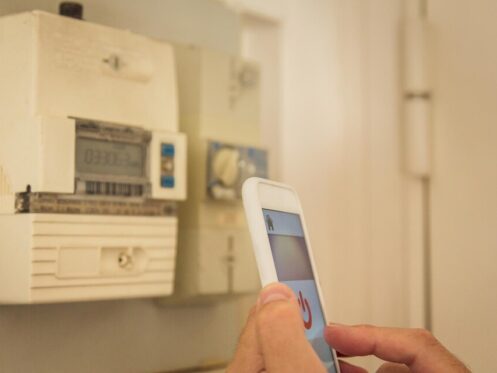When the AC suddenly shuts off and you find the circuit breaker has tripped, it’s not just a minor annoyance—it’s a sign that something serious might be going on. Tripping breakers can disrupt your comfort at the worst possible time, especially during the warm months in Lancaster when reliable cooling is a must. Homeowners often reset the breaker without giving it much thought, but repeated tripping calls for a closer look. Faulty wiring, overloaded circuits, and internal AC malfunctions are just a few reasons this happens. Left unresolved, these problems can lead to expensive repairs, permanent damage, or even safety risks.
Addressing circuit breaker trips isn’t just about keeping your house cool—it’s about making sure your AC runs safely and efficiently. That’s why understanding what causes these interruptions is the first step toward solving them. Knowing how to respond when it happens helps prevent further complications. And while some causes may seem small at first, ignoring them can lead to larger electrical or system-level failures down the line. If you’re dealing with repeated AC breaker trips in Lancaster, you’re not alone, and there’s a clear way forward.
Understanding Why AC Circuit Breakers Trip
Your AC system pulls a lot of power, especially when the temperatures rise. The circuit breaker helps manage that power by preventing damage from electrical surges, short circuits, and overloads. When it trips, it’s essentially offering a warning signal. That warning should never be ignored.
Here are the most common reasons your breaker might be tripping:
– Electrical Overload: This happens when your AC is pulling more electricity than the circuit can handle. Older systems or smaller circuits may struggle to keep up with demand, especially during intense summer operation.
– Short Circuit: A short circuit occurs when a hot wire touches a neutral or ground wire. This creates a surge of electricity, which triggers the breaker to trip immediately. It’s not just a performance problem—it’s a safety issue.
– Ground Fault: Similar to short circuits, ground faults occur when a hot wire comes into contact with the frame of the unit or another ground path. This can also cause a sudden trip as the circuit detects unusual flow and disconnects power.
In some cases, an undersized circuit or faulty breaker itself may also be to blame. But usually, the issue lies within the AC system or its immediate connections. These warning signs are easy to ignore at first, especially when resetting the breaker seems to solve the problem temporarily. But if the tripping continues, it means there’s more going on behind the scenes that needs attention.
One example is a homeowner in Lancaster who noticed their breaker tripping every afternoon once the AC kicked in for long cycles. They assumed it was just the heat wave causing the unit to overwork, but after two days of resetting the breaker multiple times, they contacted a technician. It turned out the condenser fan motor was failing and drawing too much current. Had they delayed much longer, the motor could have burnt out entirely, resulting in a more costly repair.
Common Causes Of AC Circuit Breaker Tripping
When you’re trying to stay cool, the last thing you want to deal with is a circuit that can’t handle your AC’s power needs. There are a few specific issues known to trigger breaker trips, and recognizing them can help you respond quickly and avoid getting stuck in the heat.
1. Electrical Overloads
If your system is too large for the circuit it’s on, or if your home’s wiring is outdated, your breaker might be responding to consistent overuse. Overloads usually become noticeable during hot afternoons when the AC works hardest. You might hear the system start and stop abruptly or find the indoor temperature rising without warning.
2. Short Circuits
Damaged or frayed wires are often to blame for short circuits inside or around the AC system. This kind of issue can be caused by rodents, water intrusion, or wear and tear. A short circuit can lead to instant breaker tripping with no recovery until the wiring is repaired.
3. Grounding Issues
Another common source of tripping comes from improper or broken grounding paths. This interferes with normal electricity flow and can pose safety hazards. If your breaker trips every time the unit powers on, grounding could be the issue.
4. Dirty Air Filters or Blocked Condensers
It may not seem related, but airflow restriction can cause parts of the system to overheat, which increases electrical demand. If filters are clogged or air can’t flow properly through the coils, the system works harder than it should, potentially drawing more current than the breaker allows.
Understanding these triggers not only helps you react to current issues but allows you to better explain what’s happening if our technicians need to inspect the system. Each of these causes might seem isolated, but they all loop back to the same outcome—an unstable or overwhelmed electrical system that needs attention.
Steps To Take When Your AC Breaker Trips
If your AC circuit breaker trips, the first step is to stay calm and avoid jumping to conclusions. A single trip might not mean there’s a serious problem, but frequent trips almost always do. Either way, you’ll want to follow a clear process for responding to the issue safely and effectively.
1. Turn Off the AC
As soon as the breaker trips, switch off the thermostat and the AC unit at the panel if it hasn’t already turned off. This cuts power to the system and stops any surge from worsening. Avoid trying to reset the breaker while the unit is still powered on, as that might cause damage.
2. Check for Obvious Issues
Give the system a visual inspection. Look for clogged air filters, blocked vents, debris around the outdoor unit, or strange smells that might suggest burning or overheating. These are signs that something’s off and shouldn’t be ignored.
3. Reset the Breaker Safely
Once everything is powered down and you’ve looked for anything obvious, carefully reset the breaker. Flip it all the way to the off position, then back to on. Wait and see how the system responds. If it runs normally without tripping again that day, there may not be a major problem. But don’t let that keep you from staying alert.
4. Monitor the System
Pay attention to how long the AC runs before the breaker trips again. If it happens shortly after restarting or on the same day, it’s a clear sign something is wrong. Continue using the unit like normal, but don’t reset it several times a day. That only masks the bigger issue.
5. Know When to Call Our Professionals
If the breaker keeps tripping or you notice any strange noises, burning smells, or parts of the house not cooling properly, it’s time to bring in our technicians. Persistent circuit issues can damage internal components, affect your ductwork system, or create fire hazards. Our professionals have the tools to check wiring, circuits, and overall AC performance to find what’s going wrong.
Resetting a circuit breaker repeatedly without knowing why it’s tripping can lead to more expensive repairs later. A homeowner in Lancaster once delayed a service call for a tripping breaker because it seemed random and infrequent. After a few weeks, their compressor failed completely due to overheating—a fix that came with a hefty price tag. What looked small turned out to be a big system failure in the making.
Preventative Measures For Future AC Breaker Issues
The best way to avoid circuit breaker trouble is to prevent it from happening in the first place. Regular upkeep and a close eye on your home’s electrical load can keep your AC system operating without interruptions.
Here are a few prevention tips to consider:
– Schedule Tune-Ups Before Peak Season
Have the unit inspected and serviced by our technicians at least once a year. Routine checks keep components clean and give experts a chance to catch problems like worn wiring, burnt capacitors, or bad connections before they lead to bigger failures.
– Replace or Clean Filters Regularly
Dirty filters make the entire system work harder. This can increase the chance of overheating, which leads to breaker tripping. Check your filters every month during the summer and replace them as needed.
– Ensure Proper Clearance Around Outdoor Units
The condenser unit needs space to breathe. Bushes, leaves, and debris can restrict airflow, causing internal temperatures to rise. When the unit overworks, it draws more current than the circuit allows.
– Upgrade Outdated Electrical Panels
If your home has an older panel and you’ve recently added new appliances or systems, your breaker might not be sized to handle the added load. Upgrading your panel can help prevent future overload issues.
– Don’t Run Too Many High-Power Devices at the Same Time
Air conditioners use a lot of power, especially in hot weather. Try to avoid running power-hungry appliances like clothes dryers, microwaves, or electric ovens at the same time your AC is going strong. Spacing them out can help reduce strain on your system.
Taking care of your system throughout the season helps you avoid the abrupt disruptions that come from electrical overload or failure. Small steps add up to better performance and fewer hot days spent waiting for repairs.
Ensuring Your Lancaster Home Stays Cool And Safe
When your AC breaker trips on a regular basis, that’s more than just a minor fault—it’s a sign that your cooling system could be under stress or something larger could be wrong within the circuit. These problems don’t go away on their own. Small warning signs like interrupted cycles, repeated tripping, or extra warm rooms can all point to larger electrical and mechanical issues that shouldn’t be ignored.
Homeowners in Lancaster can’t afford to gamble on their comfort during the summer season. Circuit breaker trips serve as early alarms that give you a chance to address the problem before it develops into a serious system failure or safety hazard. The right time to act is before that breaker trips again, especially if it’s already becoming a common event.
By choosing preventative maintenance, being aware of your home’s electric load, and paying attention to strange behavior in your AC system, you can protect both your comfort and your equipment. Regular upkeep combined with professional support goes a long way toward keeping your home running smoothly and safely all summer long. Whether it’s a simple filter problem or a more serious wiring fault, solving breaker trips now helps you avoid more painful repairs down the road.
Looking after your home means addressing even small AC issues before they become costly problems. By relying on our professionals for AC repair in Lancaster, you can tackle recurring breaker trips and ensure your system stays safe and efficient. Affordable Air Inc. is here to support you every step of the way. For a quick estimate or to book a service visit, please contact us today.




